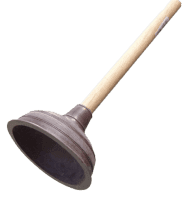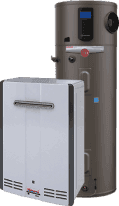
Are you tired of dealing with plumbing nightmares in your kitchen? Is this issue constantly disrupting your home life, causing stress and expensive repairs?
If so, you’re not alone—many Australians are facing similar problems regularly. Fortunately, there are certain steps you can take to help prevent plumbing issues from arising and save yourself time, money, and hassle.
In this blog post, we’ll discuss how to reduce the likelihood of common kitchen plumbing issues occurring to keep your house running smoothly.
We wonder how to avoid common kitchen plumbing problems, blockeddrains, and costly repairs. This guide from Wilco Plumbing will discuss a few steps to prevent damage and clogs to your kitchen sink.
First, ensure you never put cooking grease down the kitchen sink drain. When it mixes with food particles, oil can cause significant clogs – and it’s also harmful to the sewer system in Sydney. Instead, pour off cooking grease into a small plastic or glass container and toss an ice cube in it to cool it off, then dump it into the waste bin.
Removable drain screen covers are made of metal mesh and can perfectly fit over your sink’s drain. They screen out chunks of food that may otherwise be washed down the drain, preventing clogs from forming. When you’re done with the dishes, pull out the cover and dump the food particles in the waste bin.
Fibrous foods like pineapple and celery will clog up and jam your garbage disposal. You should also avoid putting eggshells, bones, coffee grounds, and sticky, starchy foods like pasta and potatoes/potato skins down the garbage disposal, as these can also cause it to clog up or become damaged.
You can use professional-grade drain cleaners monthly to remove build-up. Follow the manufacturer’s instructions, flush the drain with cold water from the kitchen faucet afterwards to eliminate the smell and flush the drain cleaner.
If you’d prefer to avoid caustic chemicals, you can use baking soda and vinegar. This will also help neutralize odours from your kitchen sink drain. After pouring in the baking soda and vinegar, rinse it away with hot water. We don’t recommend using boiling water since it could warp or damage PVC and other plastic pipes.
A water softener “softens” water by removing minerals like calcium and magnesium bicarbonate from your water supply. This helps protect your plumbing system – stopping the build-up of sediment in your pipes and water heater, for example – and provides you with higher-quality water.
But if you don’t maintain your water softener, your water pressure may drop because the softener will become clogged with mineral deposits. It would be best if you cleaned your water softener’s brine tank about once a year. Remove any salt build-up, and use a few gallons of water and dish soap to clean the tank.
Finish up using bleach and water to sanitize the tank, rinse it, and reconnect it to your plumbing system. Then, follow the manufacturer’s instructions to refill it with water and softener salt. Alternatively, you can also contact a professional to clean it.
At Wilco Plumbing, we know how inconvenient it can be to have a clogged sink, jammed disposal, and other kitchen plumbing issues. That’s why we offer 24/7 service in Sydney and the surrounding areas. Give us a ring at (02) 9186 3371 to get help immediately, or contact us online to call professional plumbers in Sydney to help.

Blocked Drains
Cleared

Hot Water
Cashback*
If you book online today!
Fill out your details below and we’ll contact you ASAP!!